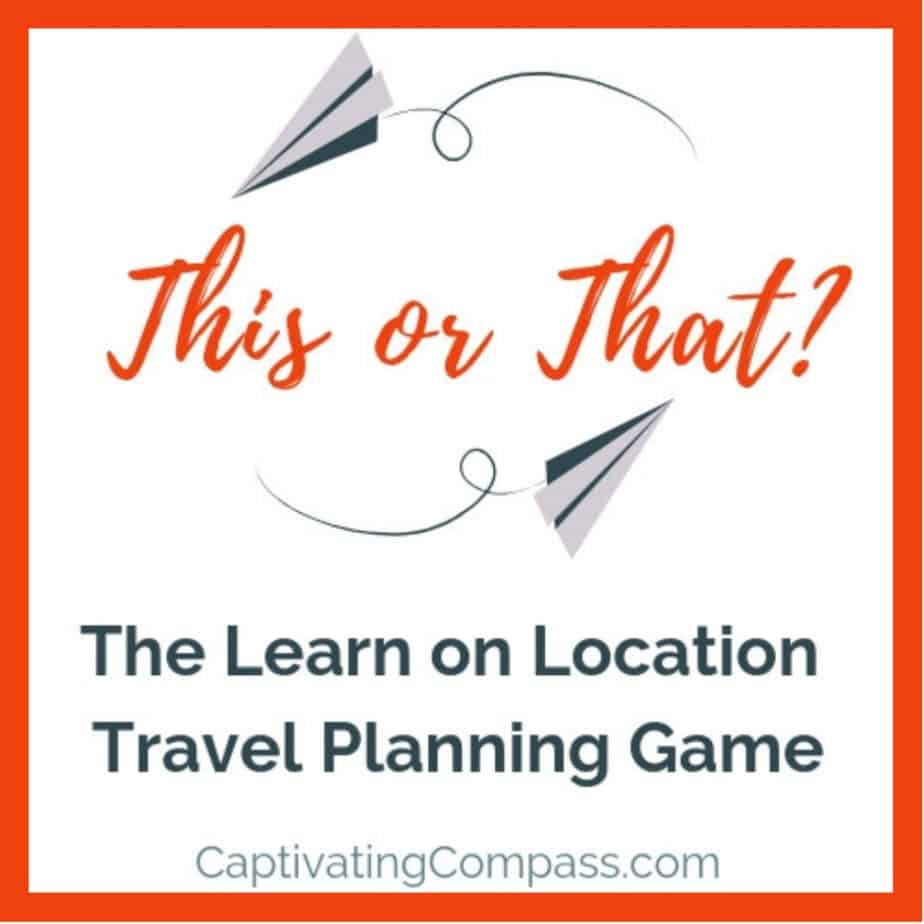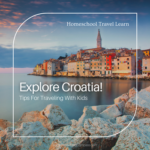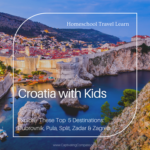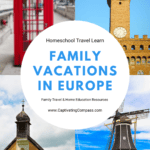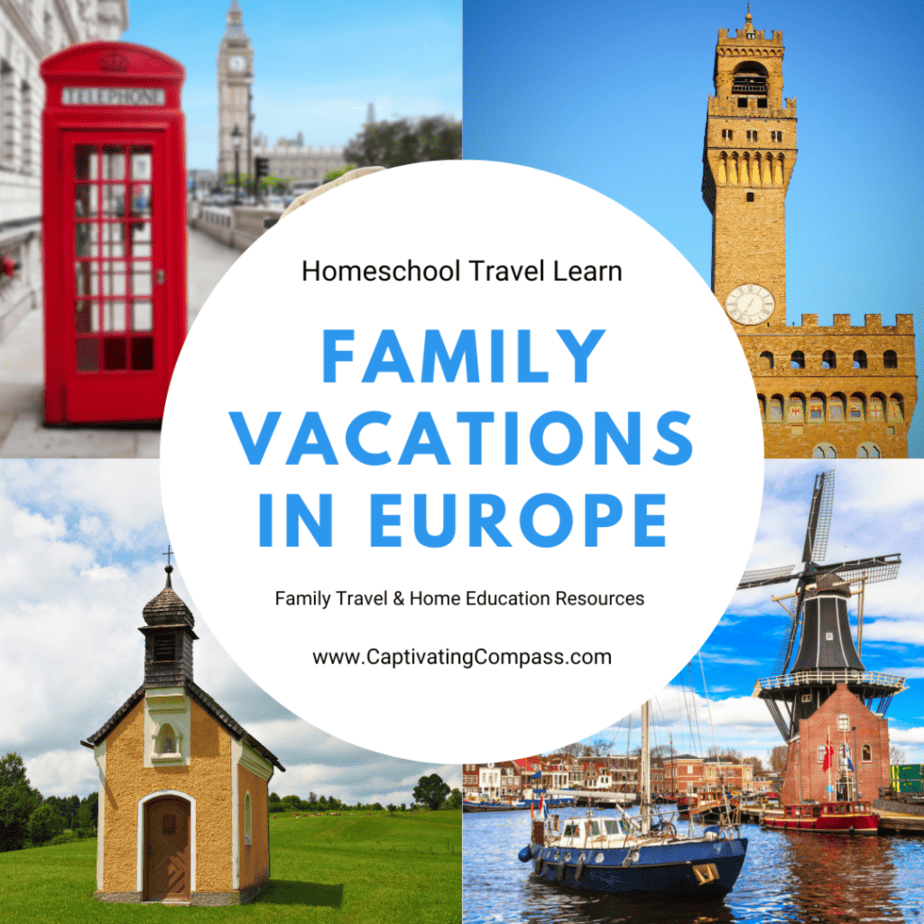
It’s time to break out the map and plan your next adventure in Europe! Our family is about to embark on a mesmerizing journey full of exploration, culture, and memories. Join us as we traverse the continent in search of amazing historical sites, delicious cuisine, and one-of-a-kind experiences. Put those passports to good use – you won’t want to miss out on this family trip to Europe. It’s a trip of a lifetime!
Table of Contents
Planning the Trip: Budgeting, Research, Bookings
Planning a family trip to Europe can be an exciting and fun experience. To maximize your enjoyment and create a successful, memorable trip, there are several important considerations you must handle prior to departure. This guide outlines the steps to take for budgeting, researching, and booking transportation, hotels, and activities for your family vacation in Europe. Each will impact your choice of the best time for your family to visit. One of the best things to do is to plan parts of your trip around European festivals and activities ( like amusement parks) that eh entire family will enjoy.
Budgeting
Begin by creating a budget and setting a limit on the total amount you plan on spending for the entirety of the trip. Doing so will not only help you save money but will entitle you to evaluate different stay arrangements in various locations throughout Europe more effectively and consider alternative options that may be better suited for your needs in terms of cost or time management. Additionally, researching local flight deals is also important as it may impact your overall budget given that airfare is often a significant expense of any trip.
Research
To prepare adequately for your vacation and understand what you are getting yourself into prior to traveling abroad. Research is a critical step in planning your family trip to Europe. Learning about weather patterns throughout the different countries or regions, authentic food experiences best suited for families with children’s sensitivities or dietary restrictions, and popular destinations and attractions throughout each destination you plan on visiting are just some examples of research topics important for informational purposes alone before embarking on such journey.
Bookings
Once your research is complete and your main questions have been answered regarding necessary preparations such as physical passports/visas (if applicable) necessary vaccinations per destination etc., planning all travel-related logistics becomes essential—including airfare tickets, hotel stays (confirming availability at desired booking times) local transportations(rental cars if necessary). Additionally researching discount packages available online which may offer lower fares when booking multiple trips will also help make suitable plans at optimal prices.
Packing for the Trip: Essentials, Clothing, Toiletries
Before you start your family trip to Europe, it’s important to make sure you have all the things you’ll need during your travel. In addition to tickets, passports, and other documents, you’ll also want to pack wisely to stay comfortable and prepared. Here are some tips for what should be in your suitcase:
Essentials
Be sure to pack any medications that you or your family members might need while traveling. Also, include a photocopy/digital copy of everyone’s passport just in case something happens to the originals while away. Other essentials include travel-size toiletries such as toothpaste, deodorant, makeup etc., a small first-aid kit with bandages, aspirin/ibuprofen, etc., sunglass, and ear plugs for reducing airplane noise. If you can’t fit it all in your carry-on, then plan to make these purchases at your first destination,
Clothing
Layering is ideal for European weather if you’re visiting during the spring/summer season since days can often be hot yet cooler at night due. This is definitely the case in mountainous areas. Bring a mix of light layers such as t-shirts, tank tops, shirts, and light sweaters along with one or two heavier layers such as jackets and sweaters for cooler weather or evenings out. Include outfits that can be dressed up or down so that you have a different option depending on where you’re going each day. It is also recommended that each person bring extra underwear and socks which definitely help with keeping it low weight when packing things in a suitcase. If not, plan on washing every couple of days.
Toiletries
In addition to the items mentioned in the essentials section above, make sure each person brings their preferred items such as shampoo & conditioner, shower gel and moisturizer etc., plus items like sunscreen handy wipes and a brush/comb set will always come in handy, especially on vacation! Again, if needed you can save space by buying these once you arrive if you are not too picky.

Getting to Europe: Flights, Layovers, Transportation
Getting to Europe can be a big undertaking, but with careful planning, it’s possible to make the journey in relative comfort. Depending on your budget and desired length of stay, you may opt for a direct flight or one with stops and layovers. You should confirm your tickets before buying and check for any applicable travel warnings issued by your home country or other applicable governments.
Flights
Flights to Europe are available from many large cities, as well as some smaller airports. International flights can be expensive, but in many cases, you’ll find better deals by flying out of a larger hub like New York City or London rather than from a smaller city. The cost of airfare will also depend upon the airline carrier and the destinations involved in your itinerary.
Layovers are another factor to consider when planning the trip. Layovers can add expense and time but they may also allow you to explore a new destination en route to Europe. Depending on where you’re traveling from, you may be able to get an overnight layover at international locations such as Rekyava or Amsterdam without paying any additional fees. Check with your airline carrier before booking tickets for details about stopover options at different airports along the way.
Transportation in Europe
Your transportation options once you’ve arrived in Europe depend upon several factors – how remote your destination is, how much time you have, how much money you are willing to spend, etc. You may choose to rent a car for the freedom of movement during your visit, hire private transportation services which offer door-to-door service between cities or opt for public transportation such as trains or buses which offer lower fares but require more flexibility in scheduling. When making decisions about transportation methods between destinations during your European tour, it’s important to research rates and routes carefully so that you get the most out of each part of the trip.
Looking for an epic family adventure? you can’t go wrong with heading to the train station and seeing where the next train is headed and deciding that’s where you are going to go next. Being footloose and fancy-free is super fun if your family can be flexible. Public transportation is generally the least expensive of all choices. Consider making transit days ‘rest days’ where you enjoy the view, give your feet a break, and rest your mind from all it has to take into the museums, activities, and cultural experiences.
Exploring the Countries: Sightseeing, Activities, Food
Exploring Europe can be an incredibly exciting experience for any family, offering a wealth of cultural diversity, fascinating history, and endless recreational possibilities. It’s important to plan ahead for your trip so that you can make the most of your time in each country.
Sightseeing is one way to soak up history and beauty as you travel. You’ll want to research popular landmarks in each country beforehand so that you can make sure to book tickets far enough in advance – especially if there is limited availability or peak season times when it will be more crowded. Sights could include the Eiffel Tower in Paris, London Eye in England, Brandenburg Gate in Germany, and the Colosseum in Italy.
Depending on where you’re traveling, there might be opportunities for unique activities like visiting a chocolate factory in Switzerland or exploring an ice castle in Norway. Other activities could include cycling through vineyards, riverboat rides through Amsterdam, or hiking through national parks – these experiences combined with sightseeing provide great photo opportunities that will help preserve fun memories from your trip.
In Europe, there are also many different cuisines which often depend on the region or city you are visiting. Depending on your budget and timeline, it might be worth looking into some of the unique dining experiences available around Europe – making sure to keep safety guidelines and restrictions at the forefront of everything you do during your travels. You may also want to include some budget-friendly restaurant visits or food tours as a way to enjoy local specialties such as authentic paella or gyros during your exploration!
What do you consider a Great Place for a Family Trip?
Every family is different. And, there is so much of Europe to explore. Get the whole family together and explore European cities. Decide to the best places for your family to visit. It could be a day trip into or out of the city or a boat ride along a famous canal or river. The ideas are endless. Here are a few ideas to help you choose the best ways for your family to experience Europe together.
France – Of course, there’s the Eiffel Tower, the Louver ( with the Mona Lisa), Disneyland Paris
England – You can’t miss Buckingham Palace and Big Ben (unless you skip London). the green spaces and beautiful parks all over the United Kingdom are delightful in the summer months. The best cities to visit in the UK are London, Bath, York, and Edinburgh. Little kids right up to adults enjoy the city lights of these great cities. The best way to see them is to take a short walk upon arrival to get yourself acquainted with the area you are in.
More United Kingdom Resouces
Check out these posts to help you plan your trip to the UK (England, Scotland, Wales & Northern Ireland). You’ll want to pay special attention to consider these activities the entire family will love
England
The main attractions in London: are Buckingham Palace, the Tower of London (with the Crown Jewels), and the panoramic views from the London Eye. there are exciting museums too including the Natural History Museum, the British Museum, and many other famous art galleries, zoos, and smaller museums.
.Scotland
Small villages in the Scottish Highlands
Italy
of course, Rome (don’t miss the Trevi Fountain) and Florence are a must, but Venice and little gems like Viterbo will provide a great way to experience Italian culture without the city hustle. It may be hard to find a swimming pool in the city, so ensure you have some beach days planned if you are there in the summer. Also, amusement parts are a bit different in Italy, so you may want to add those to your bucket list if you are planning on going to Sweden (Lego) or Switzerland (Lindt chocolate tour).
If you head north toward the Swiss Alps, pause for a day or two at Cinqueterre, and take in the beauty of the Italian Riviera.
Greece – It’s really not too far from Italy and the rich history and ancient ruins of the greek islands are favorite places for many family travelers that are looking for a more relaxed approach to visiting Europe.
Each European country has at least one Unesco World Heritage Site. Make sure you include a few as they will give you great insight into the history of and help you explore Eastern & Western Europe through its natural beauty and historical significance.
What about the Language barrier?
Often times families are concerned about visiting new places because of the language barrier. There are two things you can do.
- Learn a bit of the language of all the countries you will visit. Knowing how to say ‘Please & Thank you in the local language is the absolute minimum.
- Grab a good language app. or translator. ap. There are so many good ones. Keep it handy in case you end up on a tour only given in the local language.
what Favorite Things Your family will want to do on your Family Trip to Europe?
That’s quite common, especially for your children and even teens. The This or That? Family learning & travel-style game is the perfect answer to help you pick activities the whole family will enjoy.
Finding Accommodation: Hotels, Airbnbs, Hostels
Accommodations in Europe range from 5-star hotels to hostels, Airbnbs, and more. Depending on the trip budget and preferences for amenities, there are options to suit virtually any comfort level. But a family trip to Europe is more affordable is you can reduce the cost of accommodations by looking for more affordable options.
Hotels
Many of Europe’s cities are home to international hotel chains such as Marriott, Hilton, Holiday Inn, Ibis, and others. Booking directly through the hotel website is generally the least expensive option, but you can also book through a travel agency or an online hotel booking website. Each one will have different pricing and specials available so it’s worth shopping around. Hotels often offer family packages or discounts for kids that allow for additional savings.
AirBnBs
Vacation rentals tend to be popular for longer stays in Europe as they usually offer full kitchens with all the comforts of home at a lower price than many hotels. Families can opt for larger apartment-style accommodations or search based on amenities like views of historic landmarks. It’s important to note that occupancy regulations by the national government vary in Europe; be sure to check the rules prior to booking so you will not incur any fines while staying in a given location.
Hostels
Hostels remain one of the most cost-effective options when traveling with family in Europe but don’t think that means sacrificing comfort or quality – many hostels offer expanded amenities such as swimming pools and nearby parks meant just for children/families/youth groups which make them appealing as well. Hostel beds (or dorm rooms) may range from 8 – 30 beds depending on the size and there is usually a kitchen available where meals may be prepared at no extra cost if you decide against eating out all the time – these tips can help travelers save on their overall trip expenses significantly! Most hostels also provide private rooms if needed (but these typically come at an additional cost) and some even have family apartments with multiple bedrooms available too!
Staying Connected: WiFi, Phone Plans, Apps
When traveling abroad, it is important to make sure that you can stay connected with your family and friends while away. Unfortunately, using a cell phone or any other service back home can be incredibly expensive due to roaming charges and other long-distance fees. However, there are some options available for travelers to potentially save money on calls, texts, and data usage in Europe.
- WiFi: WiFi is often the most simple method for staying connected abroad. Across Europe, there are many public WiFi hotspots located in cafes, restaurants, and other public spaces which are free to use. Additionally, many hotels offer free WiFi access as well – simply ask before you book!
- Phone Plans: If you are planning a longer stay in Europe or need a more reliable connection than free public wifi offers, it might be beneficial for you to purchase a SIM card with a local plan already set up. Most European countries have independent cellular carriers that offer prepaid plans tailored specifically for tourists – talk to your host country’s tourist office in order to find the best available deals that suit your needs.
- Apps: Finally, if all else fails, keep in touch with friends and family by using apps like WhatsApp or Viber. These messaging services allow users to send messages internationally without incurring additional costs. Furthermore, they also provide low-cost international calling services as well. Make sure everyone knows of your plans ahead of time so they can download the corresponding app (if necessary) so that connecting remains easy during the trip!
Safety Tips: Emergency Contacts, Local Laws, Insurance
Planning a trip to Europe? Before you go, take the proper safety precautions to make sure your journey is smooth and enjoyable. It is important to research emergency contact numbers, abide by local laws, and have adequate travel insurance in case of an accident or emergency. Consider these tips as you prepare for your family trip to Europe.
Emergency Contacts
It is important to have several emergency contacts saved in your phone in case of any medical emergencies or other unexpected circumstances while traveling abroad. Make sure you include the address and phone number for your hotel or accommodations as well as the embassy phone numbers for each country you plan to visit. You should also consider signing up for travel assistance services such as the International SOS Assistance app, VIP Medical Emergency on iOS or Android devices.
Local Laws
It is important to familiarize yourself with the laws in each country you will be visiting before leaving on your trip. For example, traffic laws vary from country to country, and things that may be acceptable at home may carry a heavy penalty abroad (such as drinking and driving). Additionally, some countries limit public consumption of alcohol and require one parent with two minor children when traveling within their borders – so it pays to do research beforehand!
Insurance
Make sure you purchase adequate travel insurance that covers everything from illnesses, injury, or stolen property while abroad – this could save you a lot of money and hassle if something should happen while traveling! There are a number of reputable companies that provide individual and group plans tailored specifically for trips abroad including coverage for medical expenses, baggage/personal items loss, and 24-hour medical assistance services in case of an emergency. Be sure to read through the policy thoroughly so that you know exactly what’s covered before departing on your journey.
-
 Let’s Study Europe$24.00
Let’s Study Europe$24.00 -
 Virtual Field Trip Digital Learning Bundle$19.00
Virtual Field Trip Digital Learning Bundle$19.00 -
 4 Seasons Photo Scavenger Hunt Bundle$15.00
4 Seasons Photo Scavenger Hunt Bundle$15.00 -
 Roman Britain Unit Study & Virtual Museum Tour$12.00
Roman Britain Unit Study & Virtual Museum Tour$12.00 -
 Egyptian Mummies Virtual Tour & Unit Study$9.00
Egyptian Mummies Virtual Tour & Unit Study$9.00 -
Product on sale
 How To Turn Any Homeschool Curriculum Into A Family Travel AdventureOriginal price was: $79.00.$39.00Current price is: $39.00.
How To Turn Any Homeschool Curriculum Into A Family Travel AdventureOriginal price was: $79.00.$39.00Current price is: $39.00.
Making Memories During your Family Trip to Europe
Photos, Souvenirs, Reflections
Traveling with family is a special experience that can be rich and rewarding in many different ways. At the end of your family trip to Europe, it is always fun to look back on the memories made, but taking photos and making souvenirs are great ways to capture the experience even while it’s still happening! Here are some tips for making memories while on your family trip through Europe:
- Photography: Capturing moments with photos can be a special way to share your experiences with friends and family. When taking photographs on your travels, make sure to capture the major sights as well as small details that often get overlooked. For a truly unique shot, invite locals you meet along the way into the frame.
- Souvenirs: Souvenirs can be a tangible reminder of travel highlights. Buy or make small mementos such as paintings or trinkets that you can keep for yourself or give away as gifts for friends and family members at home.
- Reflection: Remember that memories come in all shapes and sizes – not just experiences captured on camera – so take time to reflect on what you’ve seen and done! Every evening during your travels take just fifteen minutes or so to write down highlights from each day, how things felt, and what new things were learned -– you might find yourself surprised by how much you remember afterward when looking back on your adventures!
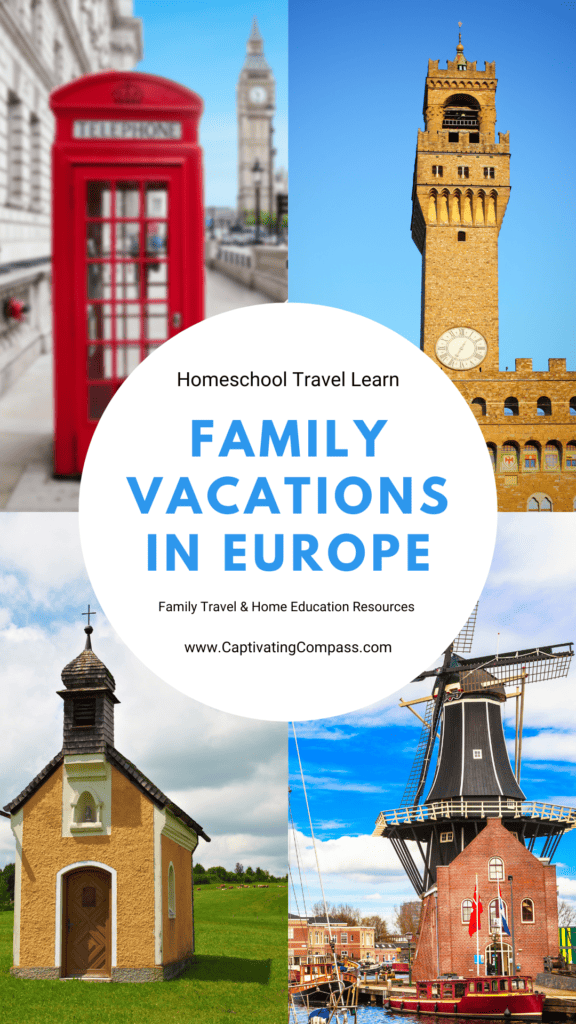
You May Also Enjoy
- Best Places To Visit In Mexico With Family
- Family Vacations: Asia Family Travel Bucket List
- Einstein Museum | Bern With Kids
- 30 Croatia Travel Tips for Families (2024 Guide)
- Family Vacations London: Is it worth it?
- Best Family Vacation in Croatia


